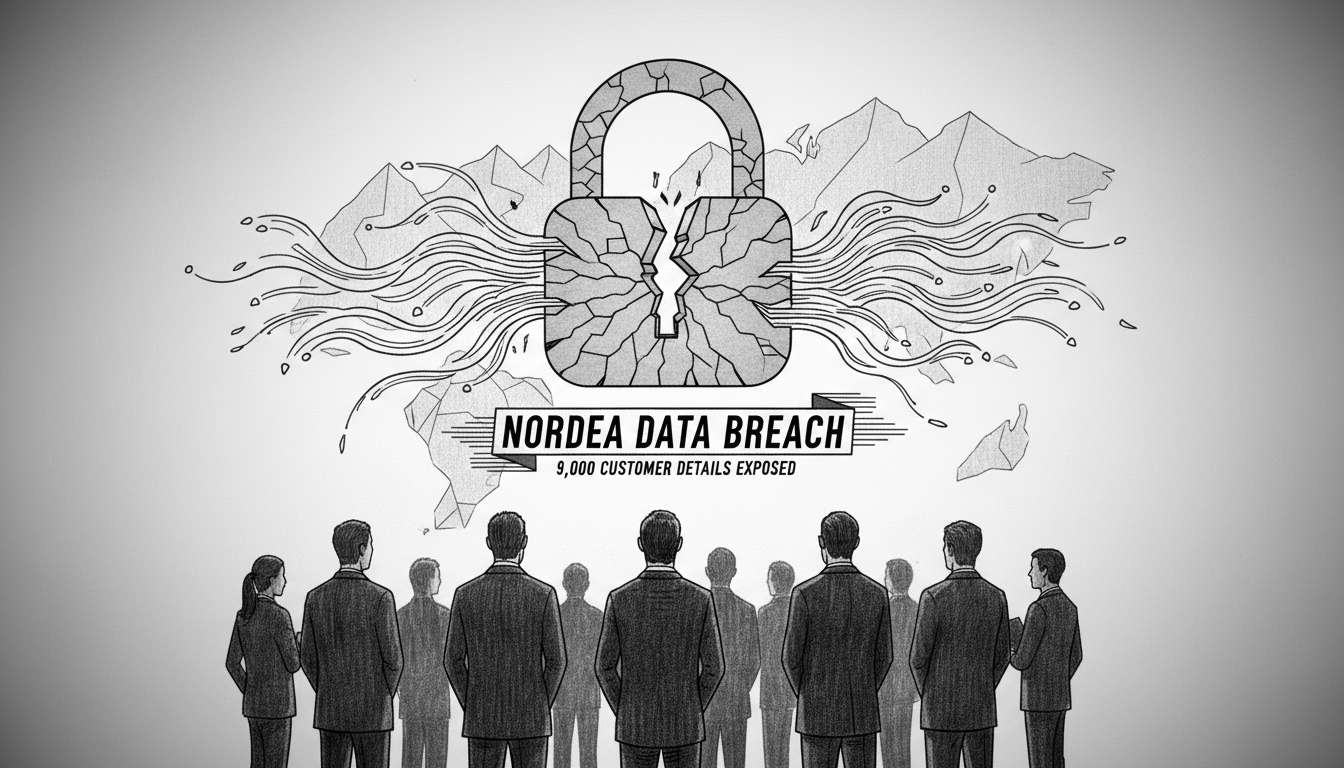Nordea Bank faces serious scrutiny after accidentally exposing sensitive personal information of nearly 9,000 customers. The major privacy breach occurred when the bank mistakenly emailed a confidential customer list to over 1,400 recipients.
The leaked document contained highly sensitive data including national identity numbers, full names, email addresses, and both personal and work telephone numbers. Among the affected customers were a media editor, several government ministry employees, and at least one staff member from Norway's National Criminal Investigation Service.
Seventy-year-old Trine Riberg from Hamar expressed her frustration about the security lapse. She receives constant messages and calls from scammers, and now fears the situation will worsen. Criminals could combine this leaked information with other data for malicious purposes, she warned.
The incident highlights ongoing concerns about financial data protection in Norway's banking sector. Even Aleksander Hagen, former county mayor of Innlandet and another affected customer, described the situation as deeply uncomfortable. He emphasized the need for proper resolution and restored trust in how such matters get handled.
Nordea's Communications Director Christian Steffensen acknowledged the error resulted from human mistake. The problematic email concerned an investment seminar for local customers in the Innlandet region. Steffensen admitted the list should never have been attached and apologized to affected customers.
The bank now faces mandatory reporting requirements to both the Norwegian Data Protection Authority and the Financial Supervisory Authority. These regulatory bodies monitor data breaches and can impose substantial fines for privacy violations under Norway's strict data protection laws.
Data protection officials expressed particular concern about identity theft risks from such incidents. In worst-case scenarios, criminals could use the leaked personal information to impersonate bank representatives and exploit customer trust.
Norwegian data protection authorities noted they hadn't yet received formal notification from Nordea when initially contacted about the breach. They confirmed that mistaken email attachments represent a common type of data protection incident that businesses report regularly.
The severity assessment for such breaches depends on both the number of affected individuals and the sensitivity of the exposed information. National identity numbers combined with contact details create particularly serious risks for identity fraud.
Data protection experts recommend that affected customers remain vigilant about email senders and monitor their credit reports for unusual activity. They should also watch for unexpected invoices or financial documents they didn't request.
This incident raises broader questions about data security protocols within major Nordic financial institutions. Banks handle extremely sensitive customer information and bear significant responsibility for protecting it against both human error and malicious attacks.
The Norwegian data breach follows similar incidents in other Nordic countries, suggesting regional financial institutions need stronger safeguards. Sweden's financial sector experienced comparable data protection issues in recent years, leading to increased regulatory oversight.
Nordea now must demonstrate concrete improvements to prevent recurrence. The bank's response will be closely watched by regulators, customers, and competitors across the Nordic banking industry. Restoring customer confidence requires more than apologies—it demands verifiable security enhancements.

